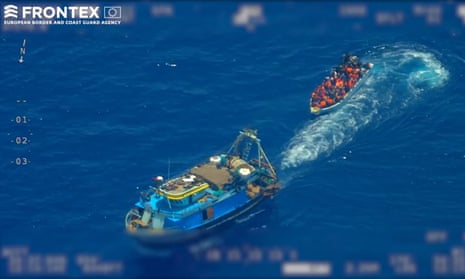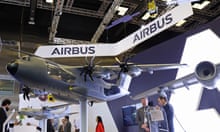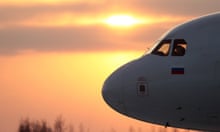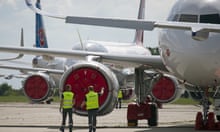Airbus and two Israeli arms companies will be paid €100m (£91m) to operate unmanned drones to spot refugees and migrants attempting to cross the Mediterranean sea to Europe, according to EU contracts.
Drone operations over the Mediterranean will start next year, after testing carried out on the Greek island of Crete.
Airbus, the European aerospace and defence conglomerate, will work with state-owned Israel Aerospace Industries (IAI) to operate the medium-altitude long-endurance, remotely piloted aircraft systems (RPAS) – known as drones – for “maritime aerial surveillance services”.
As well as the Airbus/IAI contract for €50m, the EU has awarded Elbit Systems, a private Israeli weapons manufacturer, a separate contract worth €50m for identical services.
The EU has spent increasing amounts of money on policing its borders after the number of refugees and migrants trying to enter Europe rose in 2015, putting putting pressure on the governments of member states.
The political backlash prompted a major increase in spending on measures to police Europe’s southern borders. The budget of the agency responsible, the European Border and Coast Guard Agency – also known as Frontex – increased from just €6m in 2005 to €142m in 2015, before surging to €460m this year.
The Observer reported last year that Warsaw-based Frontex was preparing to use drones. The revelation prompted criticism that the unmanned aerial vehicles could allow the EU to avoid its legal responsibility to save the lives of people in distress at sea.
The drones will be based in either Greece, Italy or Malta. The companies will provide the equipment as well as human operators to control the drones via radio and satellite links.
IAI claims its Heron drone is capable of flying for over 24 hours, and can range up to 1,000 miles from its base at altitudes of more than 35,000 feet. It has been used extensively by the Israeli and German armed forces. Airbus said the model is not capable of carrying weapons, and will be painted white with Frontex labelling.
Elbit Systems claims its Hermes drones can fly for up to 36 hours at up to 30,000 feet. Last month, Elbit announced that Hermes drones had been tested with the UK’s Maritime and Coastguard Agency off the west coast of Wales for search and rescue operations.
Airbus and IAI said they hoped the contract would open the door for the use of drones in other civilian contexts.
Moshe Levy, IAI’s general manager of the military aircraft group, said: “Flying in Europe’s civilian airspace is important progress for IAI and a solid proof for the RPAS’s ability to fly in civilian routes. I believe this contract will open the door to more civilian markets.”










